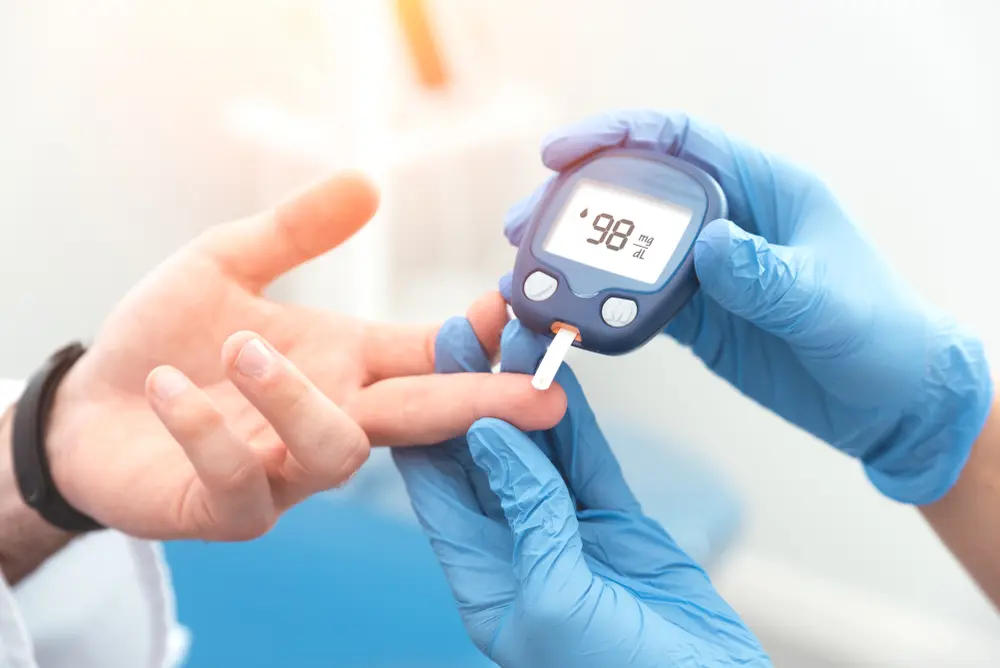What is glucose?
Glucose is the simplest forms of all sugars and that which all types of sugars are broken down into. Glucose is a monosaccharide.
The bloodstream carries glucose to every single cell in the body which they use as an energy source. The cells need insulin to unlock them and allow the glucose inside.
The makes its glucose mainly from carbohydrates (other monosaccharides, disaccharides and polysaccharides) as well as from fats and proteins if it really needs to.
Important glucose facts
- The brain has an intensive requirements for glucose for its energy needs
- Insulin is required to unlock cells so that they can accept glucose
- Glucose is known as a monosaccharide (the other two are fructose and galactose)
- The body needs a constant supply of glucose each day to enable all the cells to work properly
- Blood glucose levels can be tested through a simple blood test
Why glucose is important
Glucose is vital to keep the body running properly. Without glucose the body cannot survive for long (even if it breaks down fats and protein for its energy source).
A problem with glucose metabolism can lead to type 2 diabetes.
There are several blood glucose test that can be done, which test levels of glucose in the blood. This test is normally performed in the morning before any food has been eaten – fasting blood glucose levels. The following table shows blood glucose levels for pre-diabetes and diabetes as well as healthy blood glucose levels:
|
Fasting blood glucose
|
|
| Normal glucose tolerance (healthy) | 70 to 99 mg/dL (3.9 to 5.5 mmol/L) |
| Impaired fasting glucose (pre-diabetes) | 100 to 125 mg/dL (5.6 to 6.9 mmol/L) |
| Diabetes | > 126 mg/dL (7.0 mmol/L) |

